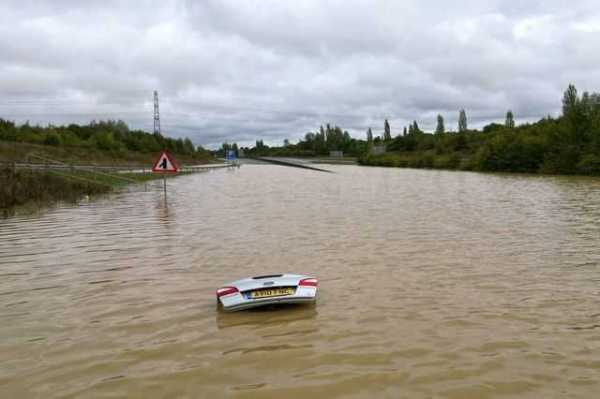
Investors are being urged to focus on climate adaptation and resilience, as US corporations increasingly distance themselves from environmental, social, and governance concerns.
Experts from the University of Cambridge’s Institute for Sustainability Leadership (CISL) and Investment Leaders Group are encouraging investors to gear up for an increasingly hotter by launching a blueprint designed to handle physical climate dangers in investment portfolios.
The newly released guide, which debuted on Wednesday, is built to furnish investors with the necessary tools and strategies to endorse businesses that are proactively adjusting to global warming effects. This push comes at a time when corporate America is slowly reverting to more traditional social and political ideologies in the wake of Donald Trump's presidential win.
Just last week, Meta pulled the plug on its diversity, equality and inclusion (DEI) program, and BlackRock withdrew from the UN-endorsed Net Zero Asset Managers initiative – part of a broader trend of US companies stepping away from DEI efforts and group involvements aimed at fostering the net zero agenda. .
Dr Nina Seega, the director of CISL’s Centre for Sustainable Finance pointed out: "Even as the political tides are turning away from a focus on sustainability, the impacts of climate change are becoming more and more deadly and damaging.
"Investors’ who want to protect their money will need to look at climate impacts and adaptation. Anyone who cares about long-term value will need to both invest in resilience of their portfolio and support a more resilient economy as a whole."
The CISL has highlighted a gap in the focus on climate change response, stressing that adaptation and resilience need to be given as much attention as "mitigation" - efforts to reduce emissions and limit global warming.
According to the CISL experts, investors must take into account the financial risks associated with increasing extreme events, as shown by recent disasters like the Los Angeles wildfires, Valencia's fatal floods, and the extremely costly Hurricane Milton.
They insist that investors are crucial in tackling the vulnerability of communities and financial systems, and that resilient strategies provide a vital competitive edge. The CISL has produced a roadmap explaining how incorporating climate risks early in investment strategies leads to better preparedness and decisions.
This approach empowers investors to work with policymakers and corporate sectors to encourage systemic changes, such as aligning private capital with global adaptation goals, improving corporate disclosure, and fostering innovative financing models through wider financial system collaboration. Dr. Seega asserted: "The clock is ticking — investors face a critical choice: act now to safeguard portfolios and invest in resilience, or risk the future of both their assets and the global ecosystem."
A select group of investors have given a thumbs up to the new climate roadmap. Eric Nietsch, head of sustainable investing in Asia at Manulife Investment Management, commented: "We view climate adaptation and mitigation as equally important, not mutually exclusive. A comprehensive approach to managing climate risk must address both. Too often, the focus remains on mitigation with the physical risks either overlooked or underestimated."
Mette Gahr, a climate investment analyst at Zurich Insurance, shared her perspective: "Addressing the climate crisis requires a massive mobilisation of private capital towards mitigation, adaptation and resilience building.This guidance aims to bridge the knowledge derived from physical climate risk assessments with the investment decision-making process."
Sabrina Nagel, global policy and finance advisor at the Atlantic Council Climate Resilience Centre, weighed in: "Adaptation and Resilience is becoming the currency of the future. The CISL guide not only highlights why it’s crucial for investors to address physical climate risks but also provides practical advice on how to integrate these risks into the various stages of the investment process."
She also emphasized the importance of advocacy for a supportive environment, saying: "It also highlights the need to advocate for an enabling environment, where collaboration will be key to shaping the New Adaptation and Resilience Economy."